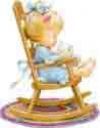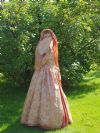|
ESL Forum:
Techniques and methods
in Language Teaching
Games, activities
and teaching ideas
Grammar and
Linguistics
Teaching material
Concerning
worksheets
Concerning
powerpoints
Concerning online
exercises
Make suggestions,
report errors
Ask for help
Message board
|
ESL forum >
Ask for help > PEOPLES
PEOPLES
|
|

Tatiana712

|
I agree with�maoopa and ben 10.�My dictionary is of the same opinion� |
21 Apr 2010
|
|
|

Laly59

|
|
Peoples is not correct, people is a collective word, means:+ of 1 person, plural is people, this can use if we want speak about different groups or o a lot of persons |
21 Apr 2010
|
|
|

aliciapc

|
|
Hi Guadalupe,
maybe it helps you if I translate for you : 1 . person = persona
2. people = personas o gente ... but in a different context ... 3. people / s = pueblo / s |
21 Apr 2010
|
|
|

zailda

|
�Usage note
People
is usually followed by a plural verb and referred to by a plural
pronoun: People are always looking for a
bargain. The people have made their choice.
The possessive is
formed regularly, with the apostrophe before the -s: people �s desire
for a bargain; the people �s choice.
When people
means �the entire body of persons who constitute a community or other
group by virtue of a common culture, history, etc.,ďż˝ it is used as a
singular, with the plural peoples: This people shares characteristics with certain
inhabitants of central Asia. The aboriginal peoples of the Western
Hemisphere speak many different languages.
The formation of the
possessive is regular; the singular is people �s
and the plural is peoples ďż˝.
At one time,
some usage guides maintained that people could
not be preceded by a number, as in Fewer than
30 people showed up. This use is now unquestionably standard in
all contexts.
Source: http://dictionary.reference.com/browse/people
|
21 Apr 2010
|
|
|

Olindalima ( F )

|
Hi
I agree, since about three o � clock ( it �s past midnight, now ) with Mauro Bonello and Zailda. Even collective nouns can have plural. A collective noun is a plural, but what if we have two different groups pf collectives of the same kind?
Spain, for example - there are several peoples in this country. UK, you have people from England, Wales, Scotland and Northern Ireland; so the peoples from,... the different "kind" ( sorry, no better word ) of different people who make the British are a group of different peoples.
Quote:
3. pl. peo�ples A body of persons sharing a common religion, culture, language, or inherited condition of life.
Off to bed, pity, I love this kind of " fighting"
Tomorrow I �ll check up
Kisses
linda
|
22 Apr 2010
|
|
|

Jayho

|
|
The others are correct in that peoples can be used but it depends on the context.
The Penguin Working Words (A Guide to Modern English Usage) states:
People (plural peoples) can be a collective noun referring to a tribe, race or nation, in which case, it is usually followed by a plural verb. A singular verb is sometimes more appropriate.
You�ll also find it in any quality dictionary as well as on good dictionary sites here on the web including here
Generally, we primarily use people in the singular form and imo that is the safest to teach. In your example it should say people. |
22 Apr 2010
|
|
|

lizsantiago

|
|
i found the same thing zailda explained though let me tell you that i have never heard native speakers used peoples i have heard six people. |
22 Apr 2010
|
|
|

dturner

|
|
I think the use of �peoples � may be an archaic form of the plural word. As I read "The Book of Negros", I noticed that the main character used peoples often, so I began to wonder if perhaps it was used as a plural form a long time ago, but not now-a-days. By the way, everyone before my post had very good explanations for the usage. Way to go team!!!!
|
22 Apr 2010
|
|
|

maoopa

|
|
I did not think this topic was to cause such a controversy.
Of course, 1000 times, the word peoples is normally used in everyday English (especially in academic settings) meaning group of people, nation, tribe.
"In the traditions of Indo-European peoples a hero is often a twin, who acquires soon after his"
|
22 Apr 2010
|
|
|

zailda

|
As I previously said, there are three cases:
person (human being) - singular --> plural "people"
person (grammar - pronoun) - singular --> plural "persons"
people (tribe or nation) - singular --> plural "peoples".
In the sentence that originated this debate, the correct is "six people".
In grammar we say: the persons I and she (for example).
Referring to nations / tribes: The ancient peoples were nomadic.
|
22 Apr 2010
|
|
< Previous
1
2
3
Next >
|